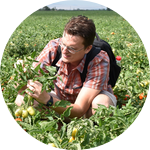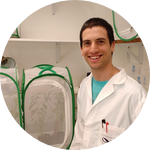About This Project
The South America tomato leafminer, Tuta absoluta, is a Neotropical invasive pest, affecting worldwide production. Its biological control, as an alternative to the current massive use of pesticides, is worth studying. In this field experiment, we are aimed to continue evaluating the potential of the wasp Pseudapanteles dignus as a biocontrol agent to reduce pest populations in greenhouses. Further, those data will be used for programming a prediction model of biocontrol.
Ask the Scientists
Join The DiscussionWhat is the context of this research?
Fresh vegetables and fruits are food consumed daily worldwide. Conventionally, crop protection measures are based on chemical control, that leads to food contamination, and negative environmental and social consequences. We investigate ways to increase the production of these main foods using biocontrol, a safe strategy which relies in the action of natural enemies (van Lenteren 2012, BioContr, 75, 1-2). Particularly for invading pests, such as Tuta absoluta, biocontrol is regarded as a promising tactic for pest management, used alone or combined with others to deal with native or already established pests (Salas Gervassio et al 2016, Agric Forest Entomol, 18, 137-144).
What is the significance of this project?
The project proposes to continue evaluating the action of a parasitoid wasp, P. dignus, as a biological control agent of the invasive pest T. absoluta. We have got previous results from similar experiments in which we varied pest and wasp densities.
Experiment funding will help us completing this large-scale experiment and obtain reliable information of P. dignus effectiveness in real scenarios (tomato greenhouses). The whole data will be used for further parameterizing and validating a simulation model to predict T. absoluta biocontrol by the wasp.
Results will be shared with public, especially farmers and extension services. Besides, it could potentially be useful for researchers abroad to manage T. absoluta invasion in other continents.
What are the goals of the project?
The objective of the experiment proposed is to analyze the effect of pest mortality by releasing certain number of female wasps, mass reared in the lab, in cages with plants infested with a known number of T. absoluta larvae (we call this Treatment 1).
We will consider two control treatments: plants infested with T. absoluta and no wasp application (Treatment 2), and plants free of insects (Treatment 3).
After that, we will monitor both insect populations weekly throughout the cropping cycle. Fruits will be harvested following intervals.
We predict that in Treatment 1, which has the presence of wasps killing the pest, plants will be healthier, tomato production higher and fruit quality better (no pest marks and free of pesticide residues).Budget
In a larger project, we are aimed to developing biocontrol against T. absoluta and to improving pesticide-free fresh food production. Getting this financial aid will help us to perform a smaller part of the main project, that consists in replicating different T.absoluta: P. dignus releasing densities. This is critical to comparing the effectiveness of P. dignus -the biocontrol agent- in reducing the pest population with other relative T.absoluta: P. dignus densities already tested. We need to buy supplies for the mass-rearing of the insect colonies in the laboratory that will be used during the releases, to pay for installing the netted cages and some crop maintenance in the experimental greenhouse, and for vehicle costs during the length of the experiment (weekly short travels throughout a 9-weeks tomato cropping cycle).
We count with a well-equipped Lab , some supplies, 9 cages made with anti-aphid mesh fabric, and UNLP, MINCyT and CONICET funding (Argentina).
Endorsed by
 Project Timeline
Project Timeline
We intend to perform this experiment during the late tomato cropping season which will take place from December 2019 to May 2020. We need to prepare the experimental greenhouse at the Gorina Experimental Station. Since there are not any of the insect species commercially available, we will collect founders to start colonies by September 2019. The experiment will be monitored throughout the cropping cycle. Data processing and publication will be done by July 2020.
Feb 04, 2019
Project Launched
Sep 01, 2019
Growing tomato plants and field collection of insects to start colonies in the laboratory at the CEPAVE
Oct 01, 2019
Growing tomato plants and mass-rearing insects in the laboratory at the CEPAVE
Dec 11, 2019
Starting the preparation of a tomato greenhouse in the Gorina Experimental Station (Ministry of Agroindustry, Buenos Aires Province).
Jan 06, 2020
Cropping and tutoring tomato plants
Meet the Team
Affiliates
Affiliates
Team Bio
Our Lab is dedicated to ecological studies on arthropod pests of agricultural crops in Argentina.
Gaby Luna is a senior researcher at the Lab. Nadia Salas Gervassio and Franco D´Auro met at Dr. Luna´s classes.
We feel qualified to perform the experiment proposed, based on our scientific background and previous work done in relation to the biological control of T. absoluta by P. dignus .
For more information about the research conducted in our Lab, please visit the link (in Spanish)
María Gabriela Luna
My career interest has been mainly the biological control of agricultural pests by parasitoid and predatory insects. I focus my research on Agrecology and Integrated Pest Management disciplines. Biological control is a technique based in the action of natural enemies against agricultural pests. The development of a biological control program requires procedures to evaluate potential candidates among a complex of species, and select the best biological control agent/s. Currently, I am studying different aspects of the biological control of the South American tomato leafminer, Tuta absoluta, by means of the evaluation of predatory and parasitoid species.
I teach undergraduate and graduate courses on General Biology, Community Ecology, Biological Control and Pest Ecology at Universidad de La Plata, Universidad de Buenos Aires and Universidad de San Antonio de Areco (Argentina).
Publications (last 5 years):
Papers in Journals
Speranza et al. 2014. Fla Entomol 97: 295-297
Luna et al. 2015.Fla Entomol 98: 489-492
Nieves et al. 2015. J Econ Entomol 108: 1553-1559
Luft et al. 2015. Rev Fac Cs Agr UNCuyo 47: 219-229
Salas Gervassio et al. 2016. Agric Forest Entomol 18: 137-144
Salas Gervassio et al. 2016. Ins Sci 24: 809-817
Savino et al. 2016. Bull Entomol Res 107: 32-38.
Luna et al. 2016. PLoS ONE 11(10): e0163196.
Garrido et al. 2017. Rev Soc Arg Entomol 76: 46-49.
Salas Gervassio et al. 2018. J Econ Entomol 111: 528-532
Salas Gervassio et al. 2019 (accepted, in press). J Pest Sci. SPECIAL ISSUE 2019
Ferracini C et al. 2019 (accepted, in press). Biocontr Sci & Tech
Book
van Lenteren et al. (Eds.). (2019, accepted). The rich history of and bright future for biological control in Latin America. CAB International.
Supervision: 1 assistant researcher CIC-BA; 5 PhD and 3 MSc students (UNLP and UBA, Argentina); 4 internships by undergraduate students
Nadia Salas Gervassio
I am graduated in Biology and Dr. in Natural Sciences at the University National of La Plata, Argentina. My interest is the study of the ecology of agricultural pests of economic importance. My main research topic at this time is to developing biological control of Tuta absoluta by evaluating biological traits of natural enemies of this pest.
As a doctoral fellow, I stayed at Dr. Urbaneja´s Lab (IVIA, Valencia, Spain) to gain expertise in studying mirid bugs as biocontrol agents in horticultural crops.
I am lecturer from Universidad Nacional de San Antonio de Areco.
Publications:
Salas Gervassio et al. 2016. Agricultural and Forest Entomology. 18, 137-144.
Salas Gervassio et al. 2016. Insect Science. 00, 1-9.
Salas Gervassio et al. 2017. Journal of Economic Entomology. 111, 528-532.
Ferracini C et al. 2019 (accepted, in press). Biocontr Sci & Tech.
Salas Gervassio et al. 2019. Journal of Pest Science. SPECIAL ISSUE 2019.
Franco D'Auro
I am graduated in Ecology at Universidad Nacional de La Plata (Argentina) and am doing my PhD at CEPAVE (CONICET-UNLP, Argentina). The Thesis project deals with the host-parasitoid interaction between the tomato leafminer Tuta absoluta and its parasitic wasp Pseudapanteles dignus. I am interested in developing a mathematical model that predicts demographic changes of the tomato leafminer and the parasitic wasp in a real tomato crop under greenhouse conditions. With this model we will be able to estimate the potential of the parasitic wasp to control efficiently the tomato leafminer. However, to buiId the model, I need reliable information from lab and field assays on these interacting species. This experiment will provide key data to develop an efficient model.
Publications
Salas Gervassio et al. 2017. Journal of Economic Entomology. 111, 528-532.
Additional Information
The research proposed will expand previous work done on Tuta absoluta biological control by assessing the action of a tiny parasitoid wasp, Pseudapanteles dignus, in reducing the pest population in an experimental greenhouse.
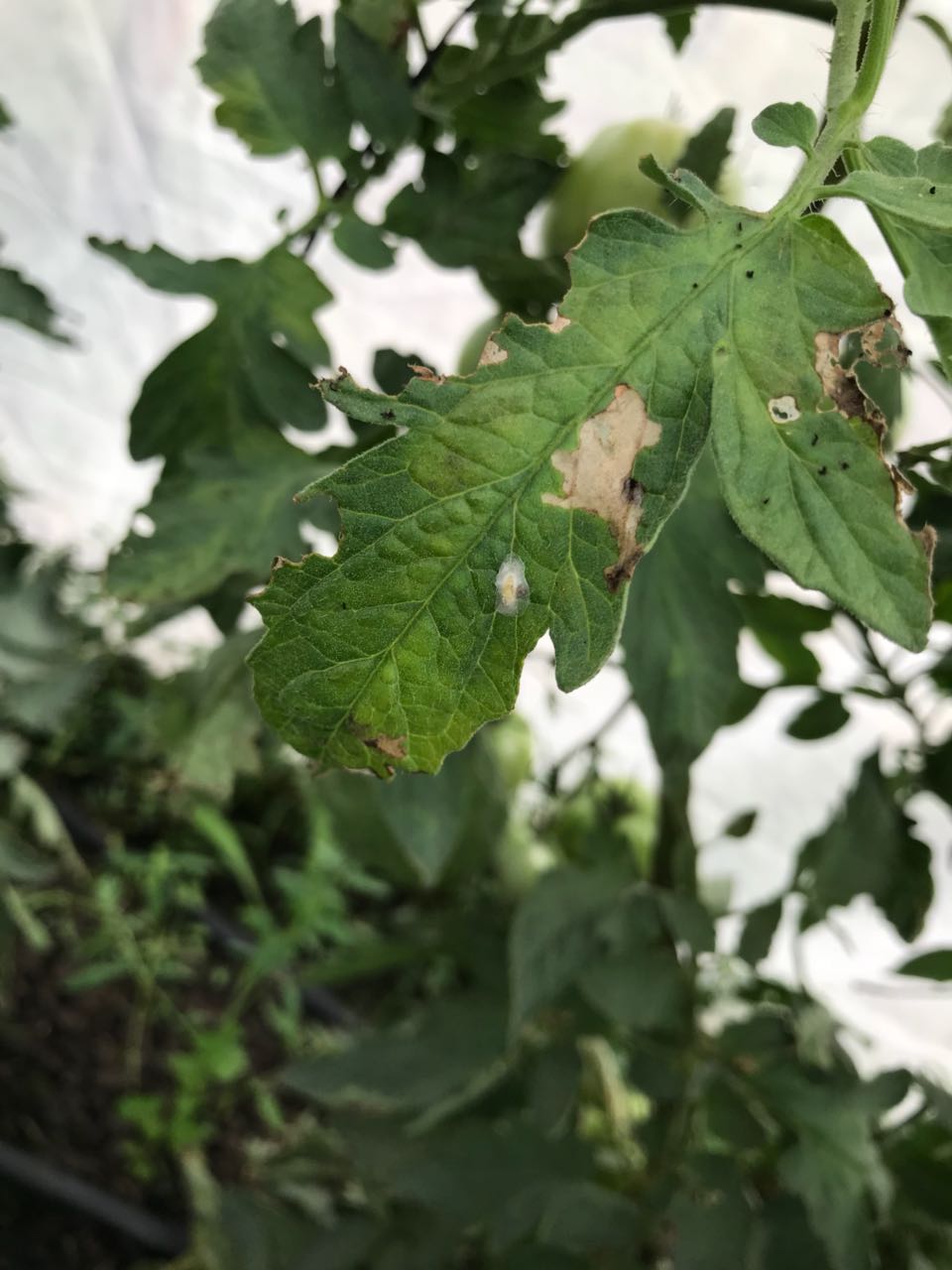
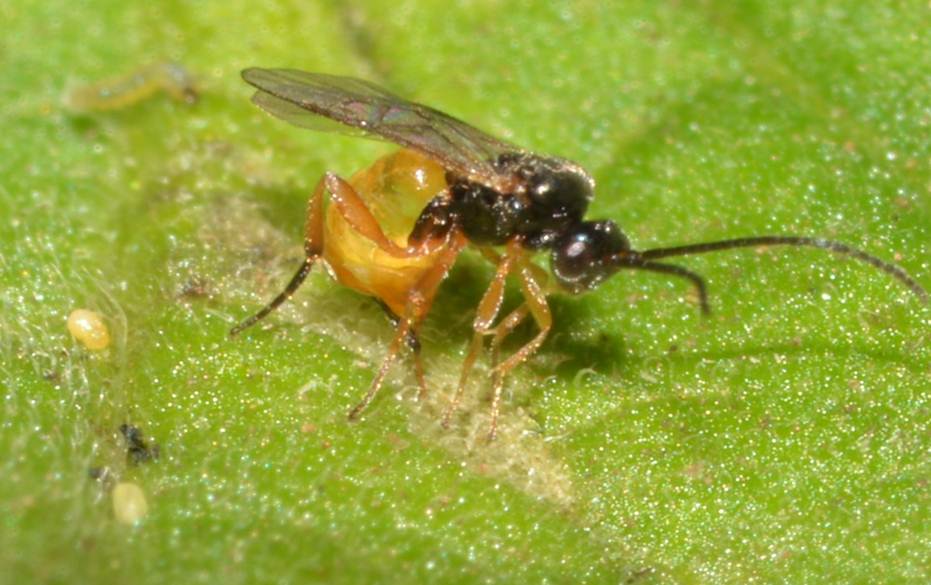
Let us introducing the wasp Pseudapanteles dignus to you. This is a tiny parasitoid wasp distributed in the American continent. The adult female efficiently searches and kills Tuta absoluta larvae (as in the Alien movie!).
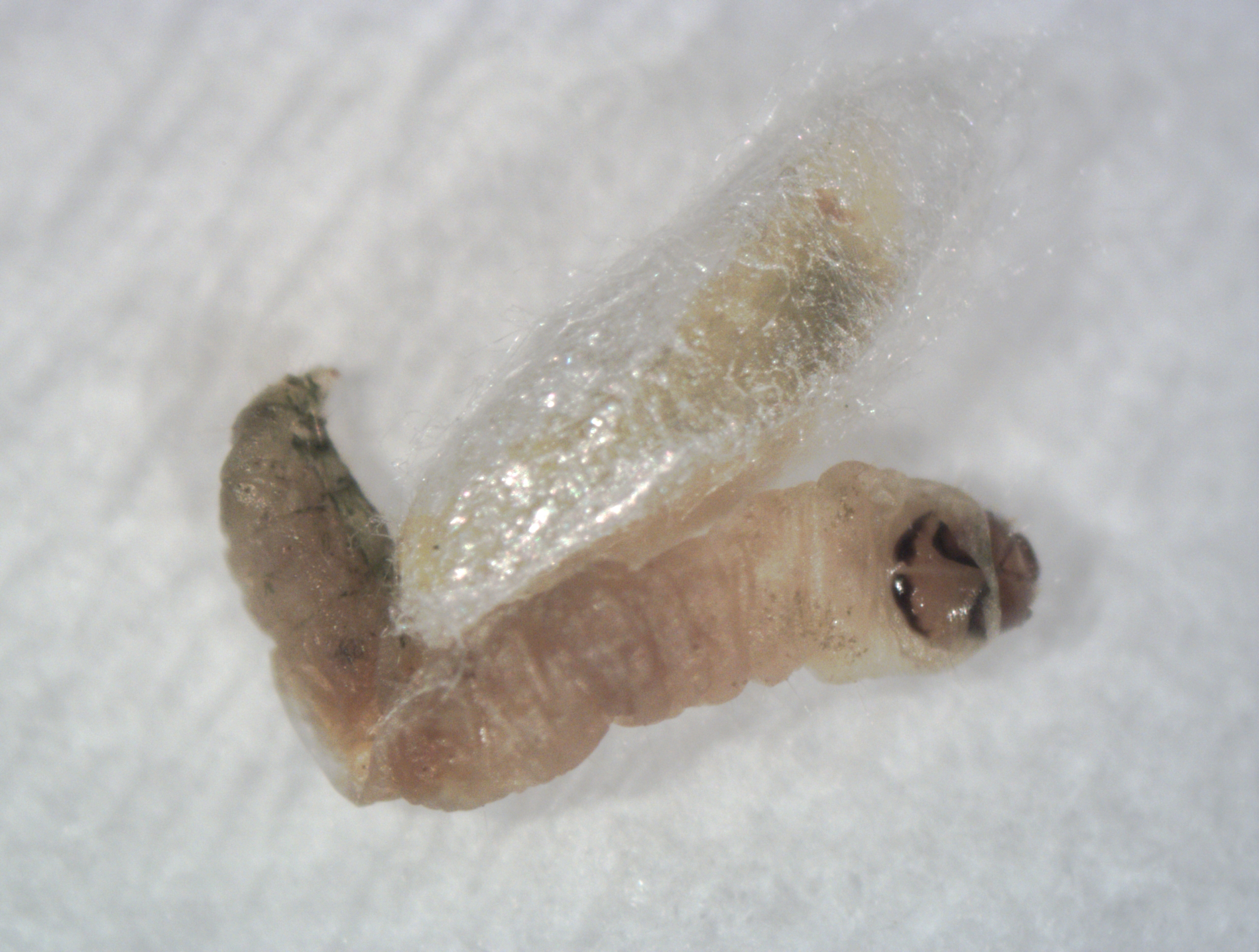
Here you can observe the experimental set-up to evaluate the performance of the wasp as a biological control agent of T. absoluta: the zipped cages of 3m width x 3m length x 2m heigth, containing 18 plants per cage, are installed in the greenhouse. Plants are firstly infested with T. absoluta larvae and later adult wasps are released in the cages to exert pest control. The project goal is to assess the effect of varying pest and wasp densities per plant to adjust releasing doses to accomplish effective predicting T. absoluta control.
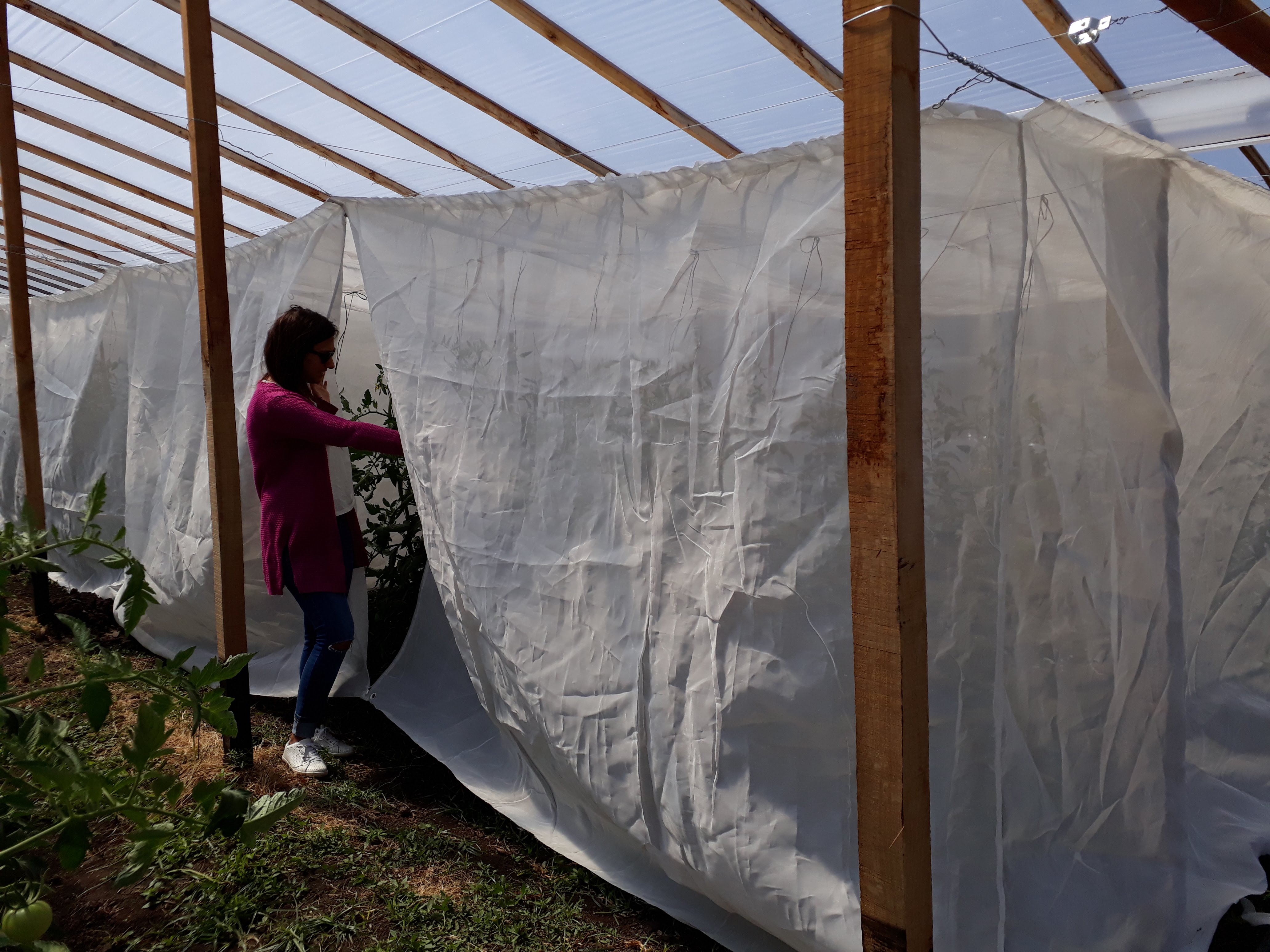
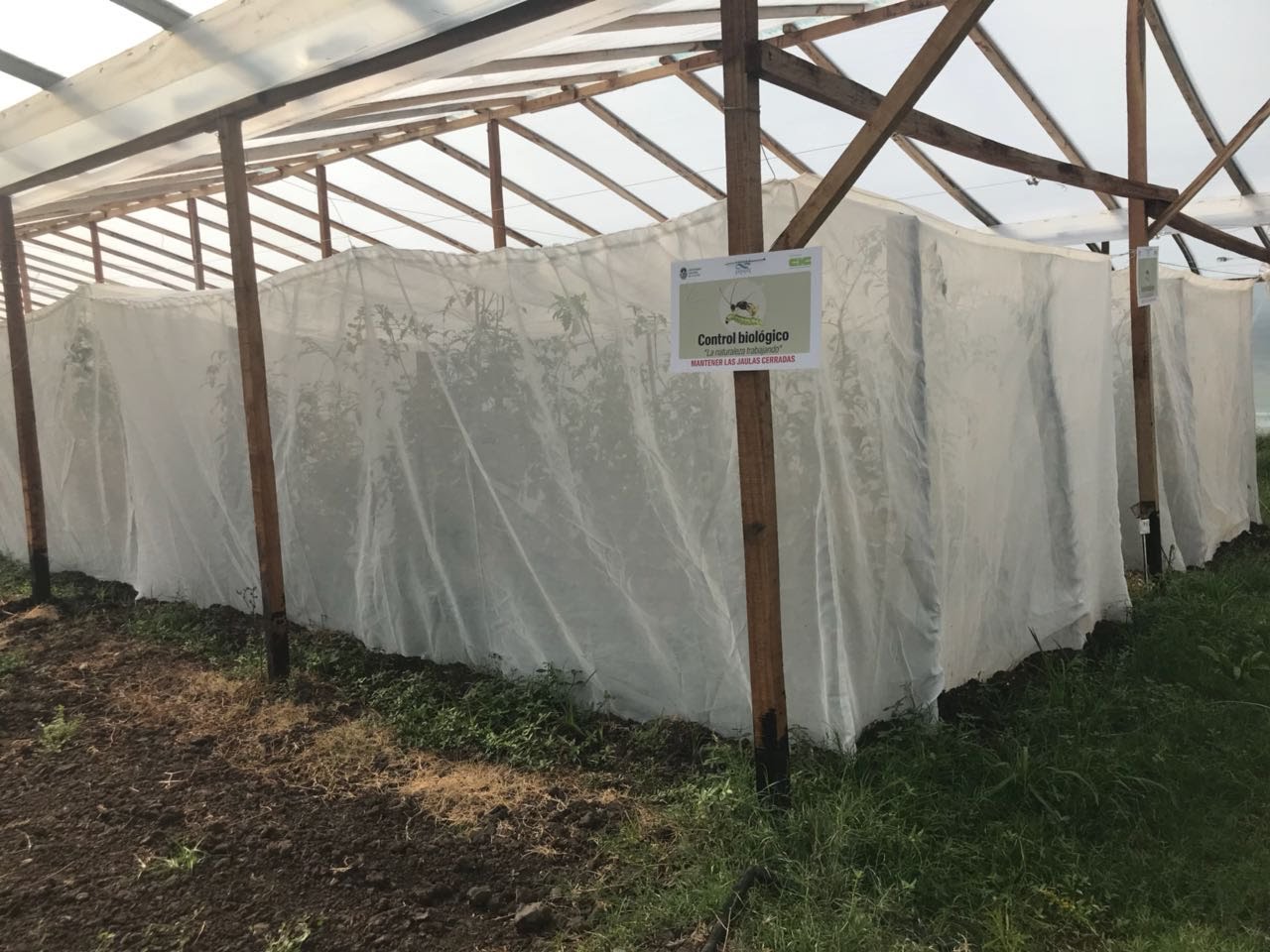
Project Backers
- 11Backers
- 43%Funded
- $423Total Donations
- $34.80Average Donation



